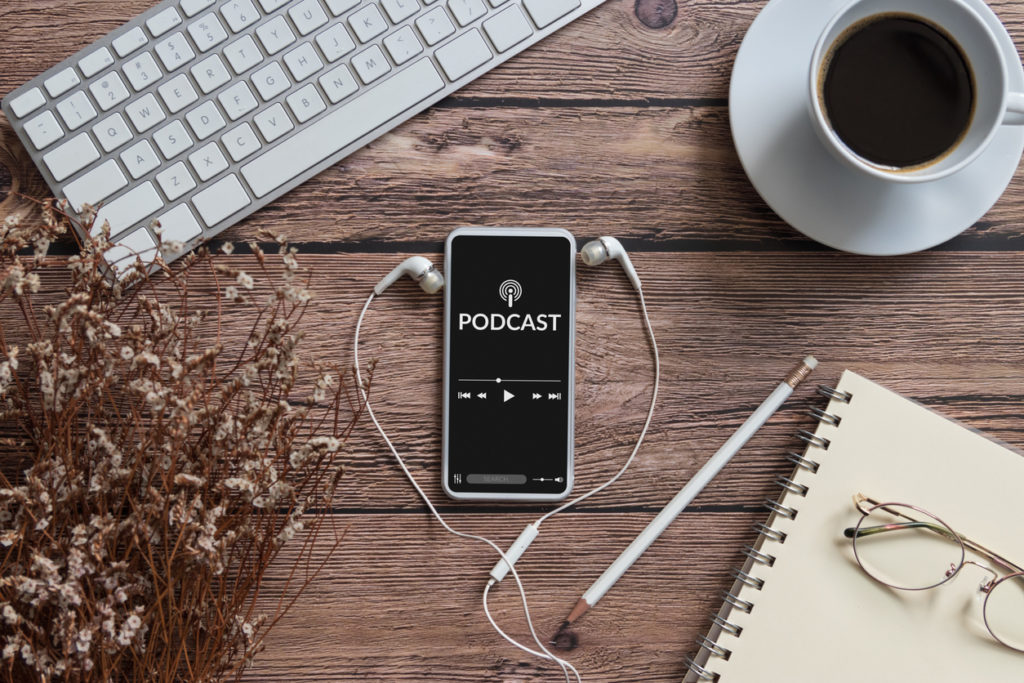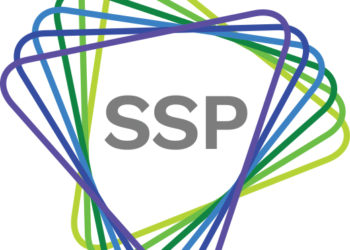Editor’s Note: Today’s post is by Juan Fuentes. Juan is the Americas Marketing Manager at Accucoms publisher services, and a member of the SSP Marketing & Communications Committee.
Podcasts have emerged as an incredibly popular audio content platform within the past couple of years. This form of information and entertainment not only allows us to multitask while listening but is accessible to anyone and builds communities. According to recent Nielsen data, podcasting continues to thrive at a 20% rate of growth and could double by 2023.
One of the many popular programs in the academic publishing industry is the Society for Scholarly Publishing’s (SSP’s) Early Career Development Podcast co-hosted by Meredith Adinolfi, Vice President of Publishing Operations at Cell Press, and Sara Grimme, Director of Strategic Accounts at Digital Science. The podcast series offers advice and discussion on how early career publishing professionals can add to their skill sets, develop networks, and take advantage of opportunities. I caught up with Meredith and Sara about the success of their podcast and tips to producing quality content.

What’s one thing you wish you had known before you began the podcast?
Our first few episodes taught us a lot! One of the biggest challenges is planning out your timing so that you end up with episodes that feel complete and worthwhile but also manageable and accessible for your listeners. We learned quickly that you’re always going to need less content than you think to fill up an episode, and when you have strong and substantial interviews, you don’t need a lot of discussion in between to pull them together.
We also learned that we could improve our end product by simply being aware of how we speak (for example, what filler words we tend to use and how to instead use brief pauses to avoid them).
Tell me more about the pre- and post-structure you follow when producing an episode?
We always start out by narrowing down our topic and then brainstorming perspectives that we want to represent. Then, we line up guests and come up with interview questions, which we share with our guests in advance. We’ve found that it’s helpful to create basic scripts to guide our introductions, transitions, and conclusions. Some of these might change on the fly as the interviews unfold, but it’s helpful to go in with a game plan. As we record each section, we get feedback from the team about any parts that need to be re-recorded or improved. Once we have all sections recorded, our producer and editor work their magic to pull it all together.
What are the best resources that have helped you along the way to produce a great quality show?
Our best resource has been a passionate and committed team. We have an excellent producer and a top-notch audio editor. As novices to this, it has been reassuring to know that the end product will come out sounding far more professional and cohesive than it might seem during recording.
It’s also important to have a team of people who will be honest and critical about how things sound and flow (both during and after episode production). In particular, as co-hosts, we’ve promised each other that we’ll always tell each other when something doesn’t work or could be better because we want the episodes to be the best they can be, and we want to keep improving.
How often should one publish episodes?
We’ve learned through the process that consistency is more important than frequency. It’s important for your audience to know when they will see new episodes and content. Because our podcast is run by a team of volunteers, we’ve found that one podcast per quarter is about right for us, but the frequency for other podcasts might be greater, depending on the team and the focus.
In times of Covid-19, how have you been engaging with audience and seek out new listeners?
We’ve been trying to ensure that our content is relevant to listeners, especially early career publishers who may be concerned that their careers are on hold during the pandemic. We’ve spoken to a number of industry leaders to understand how they are engaging with their own staff and also to gather ideas on what anyone in the publishing industry can do to further their networks and careers.
We’re also trying to stay attuned to what is useful to the scholarly community by listening to those around us, working with a team on ideas, and paying attention to what our guests say. This all provides inspiration for future episodes.
How do you get inspired to come up with new topics for each episode?
We consider both topics that are timely in the industry and those for which we can think of helpful and unique entry points. Important factors are whether a topic lends itself to our interview format and also who we can talk with to get valuable insight.
At the end of last year, we checked in with a focus group from our early career audience, and their feedback has helped us a lot in considering what topics will be of the most use and interest in 2021. In terms of inspiration and brainstorming topics, we highly recommend going to the source (your target audience) if you can.
What advice would you give someone wanting to pursue a podcast?
It’s helpful to be aware that it will take some time to feel comfortable in the recording environment, but the good thing is that it’s a very forgiving environment in which you can make mistakes along the way and then fix them. Also, it can be helpful to listen to other podcasts (industry or otherwise) to get a feel for the format and consider what elements you enjoy and what works well.
What motivates you to continue with the podcast?
Feedback from the community is very motivating, and our listeners have told us that they appreciate the content and that it is serving a distinct need. Also, because this is our first experience doing something like this, the challenge of it is motivating. We learn something and (hopefully) get better with each episode we produce.
For us personally, it is also fantastic to engage with so many of our colleagues in the scholarly publishing industry. We hope this is just as engaging for our listeners!
In your podcast you interview professionals in scholarly publishing who give advice to early careers, what is your advice for them to succeed in our industry?
We’ve heard so much interesting and valuable advice over the course of recording our episodes thus far. A consistent theme seems to be how important it is to form connections and get to know the industry. We have benefited in our own careers from involvement in industry organizations and building relationships outside of our direct spheres, and many of our guests have highlighted that as well.
We’ve also talked a lot about putting yourself out there in terms of taking advantage of available learning opportunities, challenging yourself with new and unfamiliar projects, and also proactively reaching out to those in your and other organizations. That said, everyone has a different comfort level in terms of outreach, so there’s no one-size-fits-all approach to these things. It’s about finding the approach that works for you while recognizing that you might need to go outside your comfort zone to reasonable degrees.
Thank you for your time Meredith and Sara!
All six episodes (so far) of SSP’s Early Career Development Podcast are available to stream or download on iTunes and The Scholarly Kitchen Archive.
Discussion
4 Thoughts on "Guest Post — Tips for Producing a Successful Community Podcast"
Excellent tips all around!
I concur with the idea that podcasts need to be consistent, as it helped in growing a loyal audience.
I think the importance of planning cannot be underestimated.
And for those who do not have time to create podcasts themselves, you can always rely on the experienced team of professional science podcasters available from the SciencePOD platform.
Sometimes it is best to leave these things to the pros!
PS; you may also want to find additional tips on our blog here: https://www.sciencepod.net/blog-1/why-science-is-made-for-podcasting
This was really interesting, and good to know about the SSP podcast!
As a long-time podcast listener, I have enjoyed this one since its inception. Here, it is great to get a peek behind the curtain. Thanks for sharing! In particular, I appreciate the point about being willing to make mistakes and learn from them, which can sometimes feel daunting when you are producing content that is going out into the world for anyone to hear.

